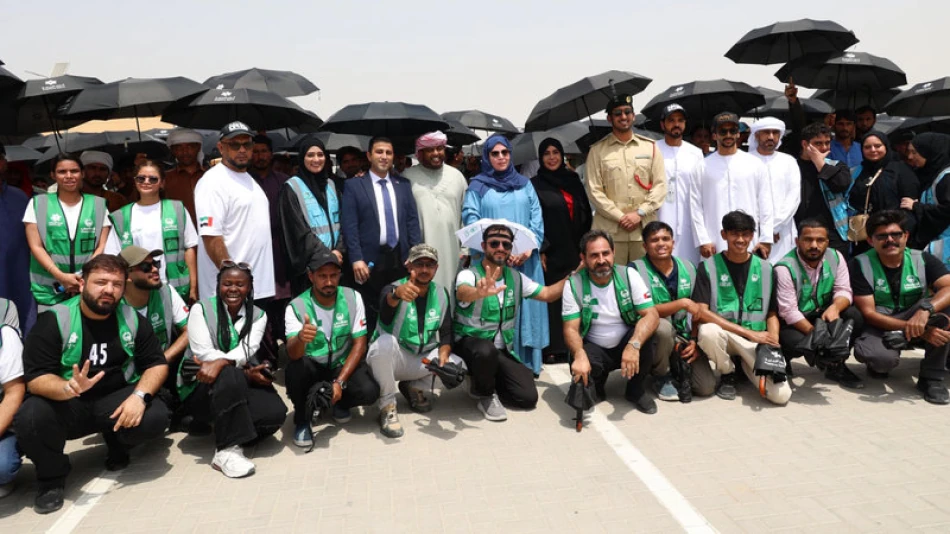
Dubai Police's 'Shade and Wages' Initiative Empowers 300 Workers
Dubai Police Launch Heat Safety Initiative for Workers as Gulf Temperatures Soar
Dubai Police have rolled out a comprehensive heat safety program targeting outdoor workers, distributing umbrellas and conducting awareness sessions as the emirate braces for another scorching summer. The "Shade and Reward" initiative reflects growing institutional recognition of heat-related health risks in one of the world's hottest climates, where temperatures regularly exceed 45°C (113°F) during peak months.
Coordinated Response to Rising Heat Dangers
The initiative emerged from collaboration between Dubai Police's Positive Spirit Council, police station management, suburban police points, the General Department of Human Rights, and the volunteer group "Thank You for Your Voluntary Giving." The program launched at Al Ayas Police Point, where 300 workers received protective umbrellas alongside safety briefings.
Workers received targeted guidance on recognizing heat exhaustion symptoms, preventing heat stroke, and maintaining proper hydration levels—critical knowledge for laborers who often work extended shifts in direct sunlight across Dubai's massive construction and infrastructure projects.
Strategic Timing Amid Climate Pressures
The program's timing aligns with mounting concerns over worker safety in Gulf states, where extreme heat poses increasing challenges to outdoor industries. Dubai's construction boom, fueled by Expo 2020 legacy projects and ongoing urban expansion, employs hundreds of thousands of workers who face daily exposure to dangerous temperature levels.
Regional Context and Worker Protection Trends
This initiative positions Dubai alongside other Gulf states implementing enhanced worker protection measures. The UAE has previously introduced midday work bans during summer months, while Saudi Arabia has expanded similar protections as part of Vision 2030 labor reforms. Qatar's World Cup preparations also spotlighted heat safety protocols, creating regional momentum for improved worker conditions.
Economic and Social Implications
From a business perspective, proactive heat safety measures serve multiple stakeholders. Construction companies benefit from reduced medical incidents and improved productivity, while the emirate strengthens its international reputation for worker welfare—increasingly important as global supply chains face scrutiny over labor conditions.
The program also demonstrates Dubai's evolving approach to climate adaptation. As temperatures continue rising due to climate change, such initiatives may become essential infrastructure rather than voluntary programs, potentially influencing building codes, work schedules, and urban planning decisions.
Measurable Impact and Future Expansion
With 300 workers reached in the initial phase, the program establishes a scalable model for citywide implementation. The combination of practical tools (umbrellas) and education creates a framework that other emirates and regional governments could readily adopt, particularly as summer temperatures show no signs of moderating in the coming decades.
Most Viewed News

 Sara Khaled
Sara Khaled






